Nick’s Number One
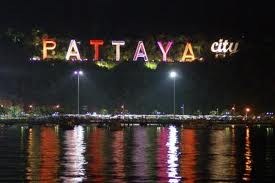
It was summer in 1979. I had a list of things to do when I got to Bangkok, and a couple things to keep a weather eye on.
I made the first liberty boat- local hire, painted pastel pink and watched the sliver of the new moon rising above the sunset as the gigantic gray steel flank of the ship slipped away. The Thai boatman’s apprentice sold us cold Amarit beers at exorbitant prices. Halfway in, the smell of JP-5 jet fuel that permeated the big ship changed to a rich mixture of spice and wet soil, the interface between the land and the sea.
We rammed the beach and I swung over the gunwale and into the surf up to my knees and waded up to the beach. Past the tee-shirt sellers, the Thai-stick hustlers, the beggers and the USS Midway Wive’s Club, across the beach road with the gaudy jeepneys, and onto a stool at an open-air cocktail lounge. One beer later I was in the back of an air-conditioned VW micro-bus and on the high-road to Bangkok.
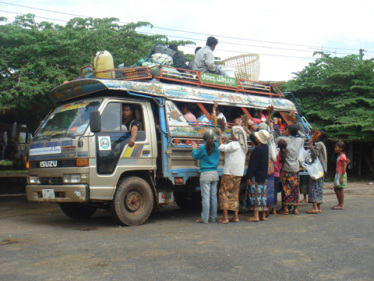
The traffic was crazy. The automobile is a recent innovation for the Thais, and since they believe in reincarnation, traffic fatalities are cheerfully accepted. We saw our first corpse on the road in twenty minutes. Travelers on the road up to the capital the next day saw nineteen, the result of a crash on one of the ubiquitous buses. It is part of the whole experience, you know?
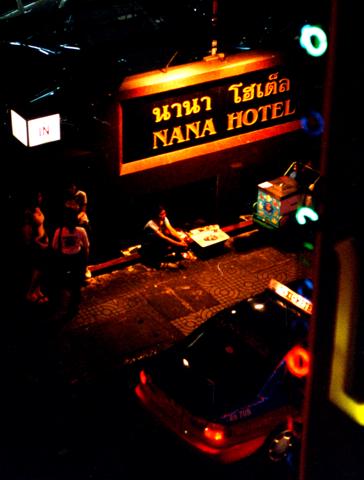
We arrived at the turn onto Sukumvit Road presently and headed into the city proper. At Soi 4 I was dropped at the Nana Hotel where I had made reservations.
“Sleep With Me!” it said on the Nana’s T-shirts. I dumped my stuff in the airy room and made preparations to go out. I flagged an open pedicab down on the street and climbed in, saying: “Patpong Road, driver, and step on me.”
I was down in the legendary bar district, by ten-thirty. The Flying Machine Bar was the most interesting, and had many signed photos of Western celebrities who had relaxed there, including Greg Morris of the Mission Impossible television show. It seemed completely appropriate. The bustle was amazing as hustlers worked the crowd. There were expat Yanks and Aussies, Germans and perhaps a few Icelanders. The hustlers were a blend of Thais, and Khmers, Lao and Malay. They were very attractive, the girls and the ones who certainly looked like girls, and the cab rides were cheap.
We dined that night at the Famous Nick’s Number One Hungarian Inn, located in a huge musty old palace festooned with the business cards of thousands of patrons on the walls. There was a 1978 University of Michigan football schedule on the wall. They say the place is haunted, and I was prepared to believe it.
I chanced to meet Nick himself over a plate of marvelous Kobe beef I could never have afforded back in Japan. He was a thick-set suave Hungarian of a certain age with a story. He had been a prisoner of the Japanese as a young man, later an entrepreneur extraordinaire, and currently a Thai national.
“Try the Kobe Steak al la Nick,” he said. “It is the least objectionable thing on the menu.” The smoke of this Dunhill curled over his fingers as he sipped a martini. He was the master of the innuendo.
We dined with him several nights as my shipmates cycled through the city from Pattaya Beach.
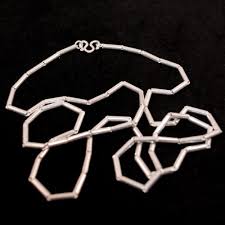
We haggled for gold in Chinatown, bought tribal silver fashioned as baht chains and reclined in the heat of the day by the Nana’s pool that was as tepid as a bath. Late at night, after the real bars closed down, we discovered something that was quite extraordinary: the coffee shop at the Grace Hotel.
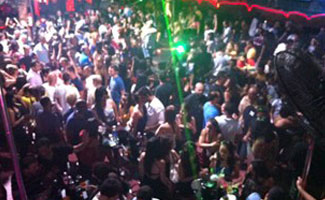
As a restaurant, the ‘coffee shop’ stayed open when the rest of the bars started to close down. Everyone who had not found something better to do- or someone to be with- washed up there. Thais, Khmers, Lao, Chinese, Malay, Burmese, even some Hmong tribal folks, not to mention a few pale slavs. The cantina scene in Star Wars had nothing on the Grace.
When it was finally the night before the ship was going to pull out, I stopped by Nick’s and invited him to tour the aircraft carrier. He graciously accepted, and offered to meet me the next morning and give me a ride down to the Fleet Landing in Pattaya.
Saying farewell to my latest best friend, went down to the lobby, paid my tab and took a cab from the hotel down to the major road junction at Sukumvit Road, noting that the cheap cabs had been transformed by the brief American presence into major expenses. My supply of red-hued bhat currency was running low, though a few of the bills that were in my pocket that day are in an envelope in my bureau.
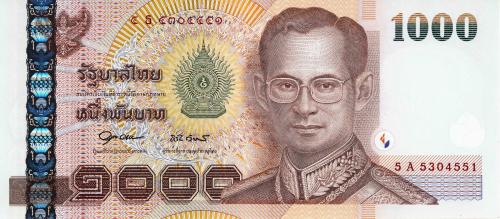
The next time I would need them I was carrying a black diplomatic passport and in a hurry.
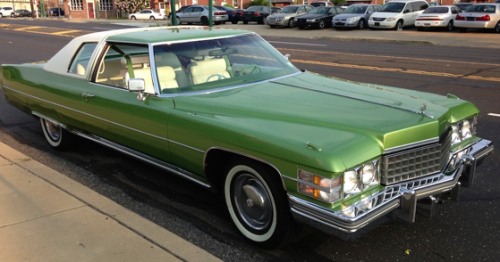
Thus, on the morning of my last day in Thailand, I found my self ensconced on the leather bench seat of the largest lime-green Cadillac in Southeast Asia, riding down to Pattaya in luxury, looking out and accepting the stares of the locals. Nick had his wife in the front right seat and drove with the same cool nonchalance he displayed as a restaurateur.
She fumbled in her purse for more Dunhills when Nick called for them, lighting them from a silver Dunhill lighter. She was a lovely woman, thick black hair curling below her shoulders, and thickening just slightly with maturity. She seemed to care for him deeply, though with the hint of irony that a long marriage brings.
As he drove, he spun tales of what it had been like to be there when the Japanese came, and how his status as a Hungarian “Ally” of the Empire of the Rising Sun had been useful. He said he had been able to help some British and American prisoners, and some commercial internees. That is what got him in trouble, and why the Japanese detained him, too, “Ally” or not.
He complained about the taxes and corruption that doubled the cost of this fine automobile. He talked about the real cowboys that came in 1946 when the city was made of mud the color of the river, flying in war-surplus C-47 transports.
Those were the days, he said wistfully. That was when he started reporting to the Hungarian Intelligence Service through their Embassy. He was a useful asset to them. The war began to heat up next door and Bangkok became the Rest and Recreation destination of choice for thousands of Americans taking a mid-tour break from the horror.
They drank and they talked loudly at Nick’s bar, and after he finished pouring the drinks and the soldiers tool cabs to the Grace Hotel he would write up his notes and pass them to his handler at the Embassy.
It was a pleasant and painless way to supplement his income, and doubtless the intelligence on the American disposition in the War next door helped to pay the taxes on the car in which I was riding.
He parked the car near the Fleet Landing and he and his wife enjoyed a tour of the ship. I suspected that he was listening for intelligence on our capabilities and next port of call. I figured it was the least we could do for him. Intelligence after the end of the Southeast Asia war was pretty thin for him, and he was getting on in years.
I figured it was about the least I could do in exchange for the ride home.
Copyright 2014 Vic Socotra
www.vicsocotra.com
Twitter: @jayare303
